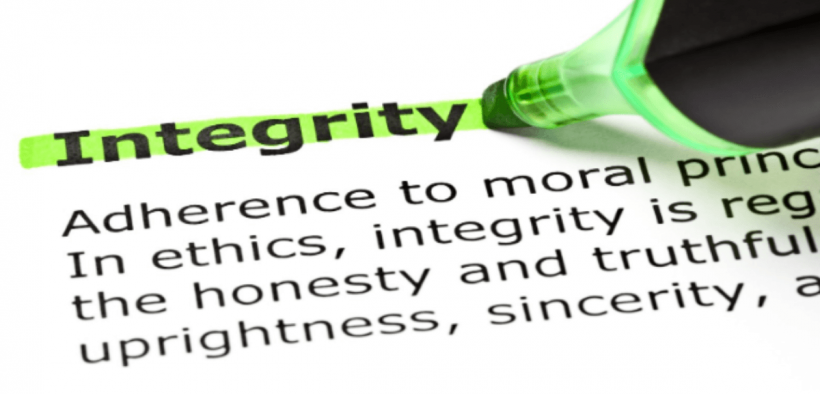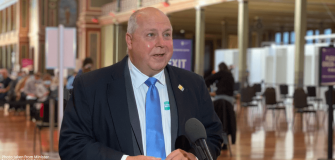In today’s environment one could be forgiven for thinking that integrity was a quaint custom from the distant past. We seem to be bombarded on a daily basis with people acting dishonestly.
The ability to act with integrity is one of the most difficult personality traits to evaluate. This article outlines some of the basic principles to protect you from hiring a dishonest applicant.
The Application
Remember that this is a sales document, designed to get the applicant in front of you for an interview.
- If you are using a recruitment agency, never accept the resume they put forward. Always insist on seeing the resume that the applicant gave to the agency. You can be certain the one that the agency provides will be well polished to hide any blemishes.
- The resume should outline the person’s work history by both month and year. Always question a resume when people report working by the year only.
- Note very carefully any gaps in employment. Certainly, there can be good reasons for this. On the other hand, by closely questioning this area I have uncovered applicants who have been in prison or in a psychiatric hospital.
- The resume should explain past job responsibilities in a clear and easy-to-understand language. Carefully question anything that is vague.
One candidate included among her past duties the following: “Responsible for integrating the relationship management system with all suppliers to enhance effective communications and ensure timely product availability”.
On questioning this, I learned that co-workers each had a scrap of paper with a list of the phone numbers of the suppliers they dealt with. This person typed up a list of suppliers with their phone numbers, photocopied it, put it in a plastic sleeve and gave it to everyone in the office.
The Interview
It is essential that the interview be carefully structured. Fifty years of psychological research has repeatedly proven that the casual, “get to know you” conversation that is open-ended and unstructured is most likely to produce a bad hire.
Be alert for the following:
- If the applicant claims success at something, determine whether this was something they did on their own or as part of the team.
- Ask for the name of the person who they reported to at each prior job.
- To learn about past mistakes, begin with this statement. “Everyone learns lessons from life. That’s just the way life is. (No one can disagree with this proposition.) Tell me about the three most significant lessons you have learned in recent years.”
Once you have noted the three lessons then ask “How did learn that lesson?”
You will find that most people learn lessons from having made mistakes. Look for any signs, however subtle, of a lack of integrity in these answers.
Reference Checking
This is the part of the selection process that is consistently done with the least skill. Everyone is tired, the demands of their own job are building up and they just want to get to a conclusion.
While this is understandable, it is no excuse for not doing this carefully.
Reference checking should be done in two stages:
- As you develop a shortlist, a reliable administrative person should be asked to phone each of the institutions where this person claims to have earned a certificate or degree. They simply need to enquire whether the organisation’s records reflect that this was granted, and the year in which it was done.
A candidate was hired for the position of a social worker in the public service. The job required reaching out to troubled youth. Later they learned that he had not finished university, and had never studied social work. A simple phone call would have revealed this, but this wasn’t done.
- Make it clear to applicants at the beginning of the process that you take reference checking very seriously. You’ll will insist on speaking to past supervisors. Explain that you may ask for their assistance in setting up appointments.
- When you’re ready to check references for the finalists, ask the candidate to contact each of the people you want to speak with. Give them some times when the interviewer is available to speak, and ask them to arrange a suitable time. It may be that some of these will have to be outside of office hours. Note carefully any reluctance, and how efficiently the candidate gets this done.
Reference checking been should be done by the same member of the interview panel for all candidates. This too requires a structured interview format. Remember though that the discussion with the referee should be a conversation, not a series of questions that make it seem like a police interview.
Among the many questions you should ask include are:
- Was there ever a time that you – or anyone else working with you – expressed any doubts about the integrity of this candidate?
- What were the things that you – even in your own mind – wish this person had done better?
- Would you hire this person again without any reservations?
Conclusion
Following these steps will help you detect a lack of integrity in some job candidates. Remember though, there are no perfect solutions to this question. You can tip the odds in your favour by following each of these steps carefully and rigorously, without exception.
Dr Byrne has been a Corporate Psychologist for over 40 years. He has worked with a wide range of public service agencies in every state and territory in Australia. He is the author of Seeing Behind the Job Applicants Mask Before You Hire: Secrets of a Corporate Psychologist available from Amazon.
For the last 40 years, Ken has specialized in serving as a second opinion to clients making a hiring or promotion decision. In Australia his advice has been sought by the ANZ Bank, Coles-Myer, The Walt Disney Company, Tattersalls, Optus, Telecom, Wrest Point Casino and a host of businesses in the SME market. For over twenty-five years he consulted to many Australian police departments and a range of other public safety agencies.






















































